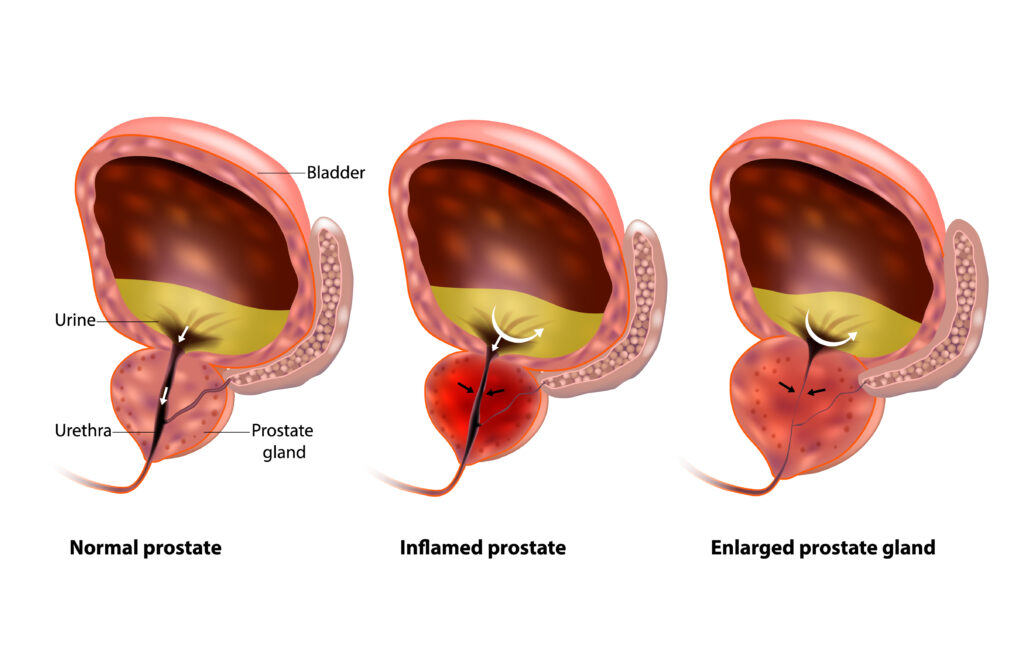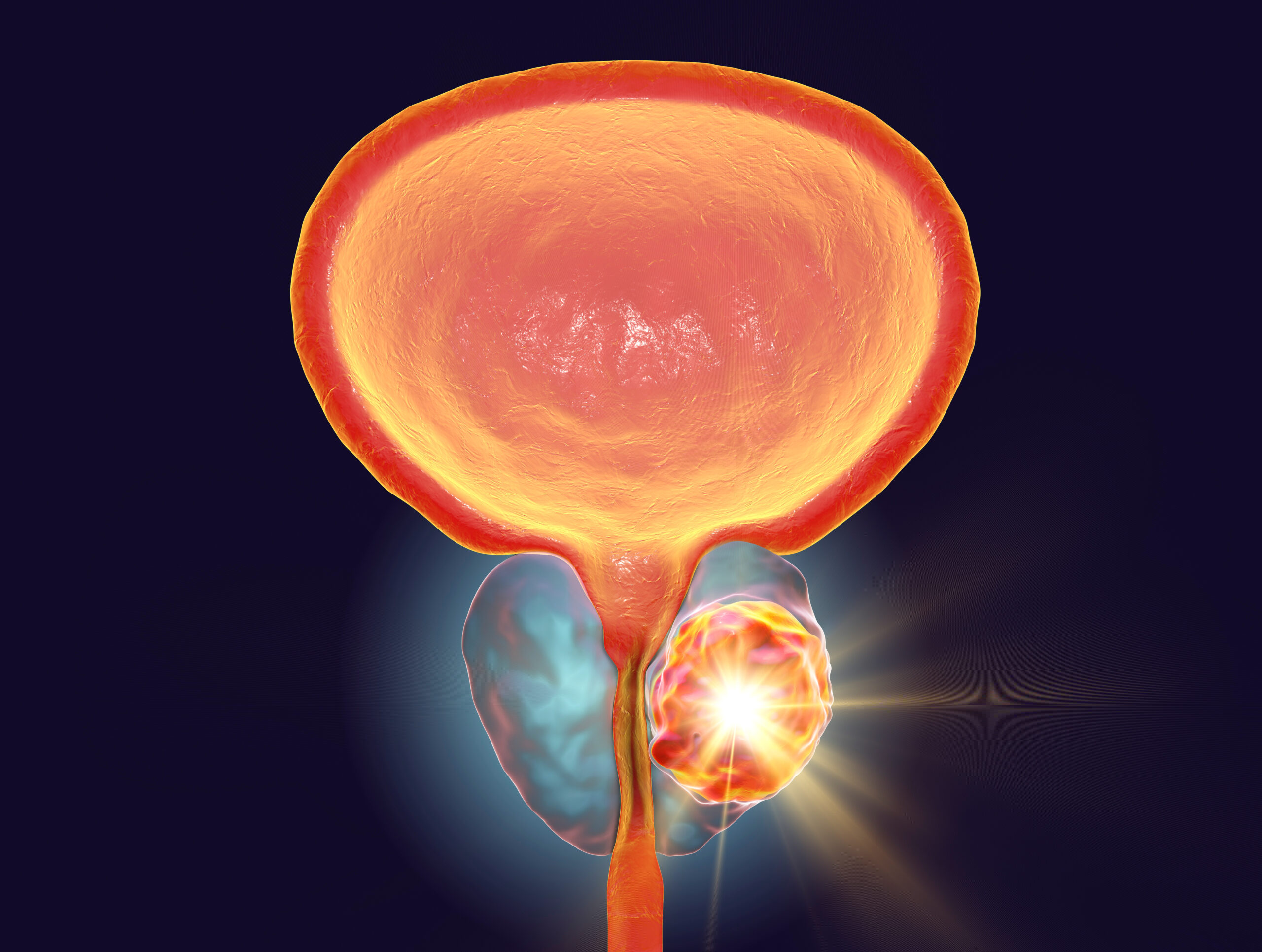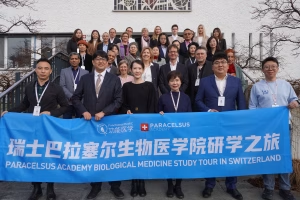The filter function results in the indications valid in conventional medicine (see end of the newsletter), which are mostly used in intensive care medicine in exceptional situations. In recent years, its use has increasingly spread to private clinics and practices. The spread and popularity of double filtration plasma apheresis can be attributed to the successes of the nephrologist Dr. Straube in Cham, Germany. He significantly expanded the indication and showed that even smaller molecules such as heavy metals or almost all toxins can be filtered out in certain quantities during plasma apheresis.
Individuelles Risiko verstehen
Um ein besseres Verständnis für das individuelle Risiko und den Verlauf der Krebserkrankung in den nächsten Jahren zu bekommen, ist ein offenes Gespräch mit einem Arzt oder einer Ärztin unerlässlich. Dabei spielen verschiedene Faktoren eine Rolle, darunter der allgemeine Gesundheitszustand, hormonelle Einflüsse, das Krebsstadium und der Lebensstil.
Früherkennung und Behandlung im Frühstadium
Die Prognose für Prostatakrebs ist besonders günstig, wenn der Tumor frühzeitig erkannt wird. Behandlungen im Frühstadium, wie Operationen oder Bestrahlungen, können erfolgreich sein, sind aber, wie oben erwähnt, mit erheblichen Nebenwirkungen verbunden. Da diese Nebenwirkungen die Lebensqualität stark beeinträchtigen, ist es wichtig, Methoden zu finden, die eine Früherkennung ermöglichen, ohne dass es zu einer Überbehandlung kommt.
Dies hoffte man mit der Bestimmung des Prostata-spezifischen Antigens (PSA) zu erreichen. Obwohl er oft ein sehr guter Indikator für das Fortschreiten der Krebserkrankung ist, muss beachtet werden, dass der PSA-Wert auch bei einer entzündeten oder anderweitig gereizten Prostata (z. B. durch intensives Radfahren, benigne Prostatahyperplasie, Alter, postejakulatorisch, Prostatitis), freigesetzt wird und einige besonders bösartige Tumore kein PSA produzieren. Daher sollten neben dem PSA-Wert auch andere diagnostische Methoden eingesetzt werden.

Symptome und Diagnosemethoden
Die Symptome von Prostatakrebs können denen einer gutartigen Prostatavergrösserung ähneln. Zudem ist es wichtig zu beachten, dass anfangs oft keine Symptome auftreten. Später können Symptome wie Probleme beim Wasserlassen, Potenzstörungen und Rückenschmerzen auftreten. Zur Diagnose stehen verschiedene Methoden wie Palpation, Biopsie, Ultraschall, Liquid Biopsie und der PSA-Bluttest zur Verfügung.
In der konventionellen Medizin ist es üblich, dass bei erhöhtem PSA und wenn ein Patient Blut im Urin, Schmerzen oder Blut im Samen hat, zunächst bildgebende Verfahren (Ultraschall und später MRT) durchgeführt werden. Wenn bei der Bildgebung eine verdächtige Läsion festgestellt wird, wird eine Biopsie empfohlen. Diese bieten jedoch keine absolute Sicherheit, und wir raten in der Regel davon ab, da sie eine kleine Verletzung mitten im vermuteten Tumorgewebe verursachen. Da Wunden heilen müssen, werden kleine Wachstumsreize gesetzt, und aus Sicht der biologischen Medizin ist dies der Reiz, der einen ruhenden Tumor in einen wachsenden umwandelt.
Es kann auch passieren, dass knapp neben dem Krebs gestochen und dieser verpasst wird, oder man findet Zellen, bei denen selbst unter dem Mikroskop nicht genau sagen kann, ob das nun ein wirklich bösartiger Krebs ist. Zudem fallen Biopsien oft falsch negativ aus und durch die mechanische Einwirkung es zur Streuung von Krebszellen kommen kann. In der Paracelsus Klinik untersuchen wir die Prostata mit Ultraschall, um Krebsherde wegen ihrer unterschiedlichen Dichte zuerkennen. Mit einem Doppler-Ultraschall wird die Durchblutungsrate fraglicher Krebsherden angezeigt: je stärker ein Krebs durchblutet ist, desto bösartiger ist er.
Im Ultraschall, kann man betrachten ob die Kapsel durchbrochen ist, was in der Biopsie nicht möglich ist.
Epigenetische Diagnose und Behandlung
Die herkömmliche Biopsie ist nicht immer die beste Option, da sie nicht immer zuverlässige Ergebnisse liefert und sogar das Risiko einer Verschleppung von Krebszellen birgt. Neue Ansätze wie die Liquid Biopsy ermöglichen es, Krebszellen im Blut zu identifizieren und genetisch zu untersuchen, was eine genauere Diagnose und Therapieplanung ermöglichen. Die Paracelsus Klinik arbeitet seit Jahren mit solchen Laboren zusammen und kann auf dieser Basis gezielte biologische Therapien anbieten und deren Erfolg auch im Verlauf nachvollziehen.
Ganzheitliche Therapieansätze
In der Paracelsus Klinik verfolgen wir einen ganzheitlichen Ansatz bei der Behandlung von Prostatakrebs. Erst einmal ist uns wichtig die Ursachen der Krebserkrankung zu erkennen. Wir gehen davon aus, dass es sich nicht nur einfach um entartetes Gewebe handelt, sondern um körpereigene Zellen, die über ein zwar gestörtes, aber besonderes, mit allen Entwicklungs-, Überlebens- und Tarn-Strategien ausgestattetes Gen-Programm verfügen. Wie wir aus der epigenetischen Forschung wissen, werden Gene von der Umwelt gesteuert und beeinflusst.
Die Versuche, solche epigenetische Veränderungen mit extrem nebenwirkungsreichen Therapieverfahren wie Chemotherapie, Strahlen-Therapie oder chirurgische Eingriffe zu zerstören, sind trotz hoher Technologie eher kontraproduktiv und auf Dauer nicht wirklich erfolgreich, ohne die Ursachen zu beheben.
Mögliche Ursachen aus ganzheitlicher Sicht sind z.B.:
- Hormonstörungen / Leberstörungen
- Schwermetallbelastung
- Zahnherde
- Chronische Darmprobleme / Stuhlprobleme / Störungen der Darmflora
- Psychologische Faktoren
- Pestizide, Herbizide und Kunststoffe
- Schlechte Ernährung / übermässiger Alkoholkonsum
- Raucher haben ein höheres Risiko, an Prostatakrebs zu sterben, als Nichtraucher
Die Paracelsus Klinik Krebsbehandlung basiert auf Eliminierung, Immunsystem und Regeneration
Die rein schulmedizinische Behandlung besteht in einer frühzeitigen Operation, hochdosierter Anti-Hormonbehandlung das einer Kastration gleichkommt (männliche Hormone beschleunigen das Wachstum) oder im Spätstadium kombiniert mit Bestrahlung und/oder Chemotherapie (Zellgifte) – alles mit entsprechender Nebenwirkung.
Stattdessen setzt die Krebsbehandlung der Paracelsus Klinik auf Ausleitung, Immunsystem und Regeneration. Es haben sich Strategien bewährt, die neben Krebszellzerstörung auf eine dauerhafte Veränderung des umgebenden Krebszellen-Milieus gerichtet sind, bei gleichzeitiger Verbesserung aller übrigen physiologischen und psychologischen Prozesse sowie Reduzierung relevanter negativer Einflussfaktoren.
Die Behandlung konzentriert sich auf folgende Behandlungsebenen:
- Direkte und indirekte Eliminierung des Tumorgewebes, Störung des Wachstums
- Verbesserung der körpereigenen Immunabwehr
- Darmsanierung (Leaky gut und versteckte Nahrungsmittelallergien belasten das Immunsystem)
- Verbesserung des allgemeinen Stoffwechsels und Mitochondrien Therapie
- Optimierung der Entgiftungsprozesse
- Reduzierung der toxischen Belastungen
- Optimierung der Zellmembranpotenziale
- Reduzierung der Entzündungsprozesse (u.a. Zahnbehandlung, Ernährungsberatung)
- Reduzierung des sozio-psychologischen Stresses
- Verhinderung der Wiederkehr (Rezidiv) besonders durch epigenetische Massnahmen sogenannter Tumor-Stammzellen
Prävention und Lebensqualität
Die Behandlung von Prostatakrebs umfasst nicht nur die Bekämpfung des Krebses, sondern auch die Verbesserung der Lebensqualität und die Prävention von weiteren Erkrankungen. Dazu gehören eine gesunde Ernährung, Body-Mind Beratung, Milieu-Therapie, Stoffwechseloptimierung und Darmaufbau.
Während auf der einen Seite wichtige physiologische Funktionen, wie Zell- Metabolismus und natürliche Entgiftungsprozesse angehoben und optimiert werden, sind alle destruktiven Reaktionen, wie Entzündungen und Schmerzen, körpereigene und externe Giftstoffe, nicht zuletzt der in jeder Hinsicht kontraproduktive psychische Stress sowie Schmerzen jeglicher Art, zu reduzieren (6).
Neben der direkten Behandlung des Tumorgewebes konzentrieren wir uns auf die Stärkung des Immunsystems, die Entgiftung des Körpers und die Reduzierung von negativen Einflussfaktoren wie Stress und Entzündungen (7).
Die Ärzte an der Paracelsus Klinik haben über viele Jahre ein sehr erfolgreiches Behandlungskonzept entwickelt:
- Ganzheitliche Behandlung zur Ursachenbekämpfung durch die Beseitigung allgemein schädlicher Umwelteinflüsse: Schwermetalle, Toxine aus wurzelbehandelten Zähnen, Spurenelement- und Vitaminmangel, Übersäuerung des Stoffwechsels, Kunststoffe, Herbizide und Pestizide, usw.
- Lokale Hyperthermie (Indiba), eine Interferenzstrom-Hitzetherapie zur schmerzlosen lokalen Überhitzung von Tumorgewebe, das durch Temperaturen über 41,5 Grad Celsius zerstört wird – jedoch nicht gesundes Gewebe. Idealerweise 20 Behandlungen 2-3 Mal pro Woche
- Misteltherapie, die am besten erforschte biologische Tumortherapie. Ein Mistelpräparat wird vom Patienten selbst in steigender Dosierung 2-3 Mal pro Woche unter die Haut gespritzt. Wir konnten die Wirkung signifikant verbessern, indem wir Haptene hinzufügten. In der Biologischen Medizin werden Haptene verwendet, um Tumorzellen für das Immunsystem erkennbar zu machen
- Neuro-vegetative Neuraltherapie, eine Injektionstechnik in den Nervenkomplex über der Prostata. Dieser Bereich wird als Frankenhausers Ganglien bezeichnet, und ein Depot aus extrem niedrig dosiertem Hormon (homöopathisches Östrogenanalog) zusammen mit Procain, hat sich als äusserst erfolgreiche Behandlung für viele Männer mit Prostatakrebs erwiesen. Wir beginnen meist mit ca. 10 Injektionen 1-2 Mal pro Woche, wonach anhand Labortests und/oder Verbesserungen der klinischen Symptome über eine geringere Anwendungsfrequenz diskutiert wird
- Homöopathische Tropfen mit “niedrig dosierten” Hormonen, d. h. eine speziell zubereitete Mischung aus Homöopathika und wiederum Hormonen, die im Vergleich zur konventionellen Arzneimittel 40-100 Mal verdünnt sind. Die Dosierung wird individuell entsprechend der PSA-Kontrollwerte angepasst
- Papimi: Ionenmagnetische Induktionstherapie.
- Infusionstherapien mit Vitaminen, Mineralstoffen, Spurenelementen, Isopathie, Homöopathie etc
- Phytotherapie mit verschiedenen pflanzlichen Heilmitteln
Neue Hoffnung für Krebspatienten
Die Paracelsus Klinik möchte Krebspatienten durch ein effektiveres Behandlungsprogramm neue Wege eröffnen. Indem wir die grundlegenden Ursachen des Krebses angehen und unsere Behandlung an die einzigartigen Umstände jedes einzelnen Menschen anpassen, können wir den Krebs stoppen und die Gesundheit des Patienten wiederherstellen. Gerne koordinieren wir auch Ihr medizinisches Team zu Hause in jeder gewünschten Form. Unsere Methoden eignen sich auch als Begleittherapien, wenn sie sich zusätzlich für konventionelle Methoden wie Chemotherapie entscheiden.
Wenn Sie Fragen zu Prostatakrebs oder anderen gesundheitlichen Problemen haben, zögern Sie nicht, uns zu kontaktieren. Wir stehen Ihnen gerne zur Verfügung, um Ihre Fragen zu beantworten und Ihnen bei der Suche nach geeigneten Behandlungsmöglichkeiten zu helfen.
Referenzen:
- www.krebsliga.ch/ueber-krebs/zahlen-fakten/-dl-/fileadmin/downloads/sheets/zahlen-krebs-in-der-schweiz.pdf
- https://www.cancer.net/cancer-types/prostate-cancer/statistics
- Nikanjam M, Kato S, Kurzrock R. Liquid biopsy: current technology and clinical applications. J Hematol Oncol. 2022 Sep 12;15(1):131.
- Limaye, Sewanti, et al. Accurate prostate cancer detection based on enrichment and characterization of prostate cancer specific circulating tumor cells. Cancer Medicine 12.8 (2023): 9116-9127.
- Seyfried, T.N., Shelton, L.M. Cancer as a metabolic disease. 2010; Nutr Metab (Lond) 7, 7.
- Sekhoacha, Mamello, et al. “Prostate cancer review: genetics, diagnosis, treatment options, and alternative approaches.” Molecules 27.17 (2022): 5730.
- Kraft M and Pfeifer B. Langzeitüberleben mit metastasiertem und kastrationsresistentem Prostatakrebs. Onkologie heute 8/2023:16-22. https://integrative-cancer-care.org/wp-content/uploads/2023/12/Langzeitueberleben-mit-metastasiertem-und-kastrationsresistentem-Prostatakrebs-MK.pdf




